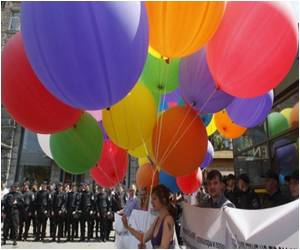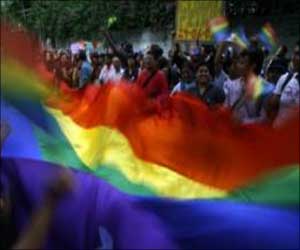In a new survey, more than half of gay men (60%) and lesbians (54%) and 24% of heterosexual men said they have been targeted with homophobia.

"This is not acceptable. Everyone should be able to enjoy sports. It is time that all sports enforce a zero tolerance of hateful language on and off the fields," said Robbie Rogers, first openly gay male professional athlete to join any of the five major US sports leagues when he signed with the LA Galaxy soccer team.
Of those who had personally experienced homophobia: 81% of gay men and 80% of lesbians have received verbal slurs such as "faggot" or "dyke." Violence was also common with 21% of gay men and 14% of lesbians reporting physical assaults and 26% of gay men and 18% of lesbians reporting threats of harm.
The research, on behalf of the Bingham Cup (the world cup of gay rugby) and affiliated sports groups, was conducted by the global sports market research firm Repucom and overseen by a panel of seven academics from six universities, including Brunel University London.
The results, however, also show that despite the prevalence of homophobia, more young gay and lesbian athletes are coming ’out of the closet’ than ever before. Gay men in Britain under the age of 22 were nearly twice as likely to be out of the closet to their entire team (30%) than in most other English speaking countries.
"In Britain we have recently invested significant resources to address discrimination in sport but it is very clear from this study that much more needs to be done, particularly around homophobia," said review panel member professor Ian Rivers from Brunel University London.
Advertisement









